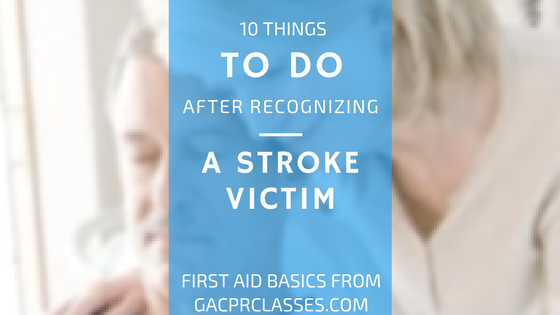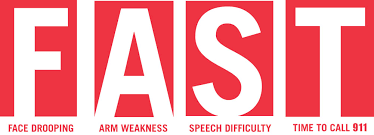10 Things To Do After Recognizing A Stroke Victim

[adinserter block=”2″]
[adinserter block=”3″]
A stroke occurs when a blood vessel that feeds the brain gets blocked or bursts. When that part of the brain stops working, half of the body’s functions it controls stop as well.
Stroke is currently the fifth leading cause of death in America today. It is also a major cause of severe, long-term disability. People over 55 years old have more chance of stroke, and the risk gets greater the older you get. Men, African Americans and people with diabetes or heart disease are the most at risk for stroke. About 6.6 million people who have suffered a stroke are still alive today.
Knowing the signs of stroke is very important. If you act fast and go to a hospital right away, you could reduce the effects of a stroke or even save your own life.
How To Recognize A Stroke
Spotting a Stroke F.A.S.T. from the American Heart Association:
F. Facial Drooping – Ask the person to smile. One side should droop or feel numb.
A. Arm Weakness – Have the person lift both arms. Does one drift downward?
S. Speech Difficulty – If they have slurred speech, are unable to speak, or they are difficult to understand, help will be needed immediately.
T. Time To Call 911 – Even if the symptoms go away, the victim should be taken to the hospital to be examined immediately.

Other Symptoms Of Strokes To Know:
- Numbness or weakness of the leg
- Sudden confusion or trouble understanding
- Trouble seeing in one or both eyes
- Trouble walking, dizziness, loss of balance, or coordination
- Sudden severe headache with no known cause
Strokes are serious medical emergencies and help is needed immediately. Here’s our list of 10 things to do to help after a stroke has occurred.
[adinserter block=”2″]
[adinserter block=”3″]
Things To Do After Recognizing A Stroke Victim
1. Stay Calm.
2. Call 911 or have someone else call. If calling from a cell phone, give the operator your number in case you get disconnected. Tell them where you are so help can be on the way regardless of what happens.
3. Stay on the phone and answer all the questions the operator has for you. This will allow paramedics to be more prepared when they show up on scene.
4. Be sure to note the time that you recognized symptoms. Medication can only be administered in the first few hours. Recognition and getting help are the best ways anyone can help after someone experiences a stroke.
5. Describe the victim’s symptoms to the dispatch operator. Tell them exactly what you heard and saw.
6. Keep the victim safe. Due to stroke’s effects on the brain and motor functions, have the person sit or lie down so they do not cause any harm to themselves from falling down.
7. Remove or loosen any tight clothing that can get in the way of breathing.
8. Unlock or have someone unlock any doors in the way. This will allow emergency personnel easier access to providing help for the victim.
9. Stay with the victim and monitor for changes. Victims will often be confused and scared, so be prepared accordingly.
10. If the victim ever loses consciousness, check to see if they are also still breathing. If they are unconscious and not breathing, start CPR immediately, beginning with chest compressions. 911 operators can assist you over the phone and walk you through CPR if necessary.
How To Prevent A Stroke
- Don’t smoke, and avoid second-hand smoke.
- Treat high blood pressure.
- Eat a healthy diet that’s low in saturated fat, trans fat, added sugars and salt.
- Be physically active.
- Reach and maintain a healthy weight.
- Control your blood sugar if you have diabetes.
- Follow your doctor’s orders for taking medicine.
- Get regular medical check-ups.

Proudly offering American Heart Association workplace CPR training classes in the Greater Atlanta area. 3 local offices, online and classroom options, and cards are issued at the time you complete training. ACLS, CPR, BLS, First Aid, and PALS classes are available.
Disclaimer: There are ads and affiliate links within our posts. We earn a small commission if you do choose to use the links and they do not add any additional cost to you if you do use them. Products are recommended because they are useful and helpful, not because of the commission possibly earned. Only use the links if you believe they can help you or you are interested in learning more about an advertisement.
[adinserter block=”2″]
[adinserter block=”3″]